|
|
||
| Network Testing and Emulation Solutions |
The TR-398 WiFi Performance test plan by the Broadband forum provides a comprehensive set of tests to qualify the performance of WiFi access points (APs) to be deployed in residential and small office indoor environments. The TR-398 Issue 3 includes new test cases as compared to TR-398 Issue 1 and 2. The new test cases in TR-398 Issue 3 include Latency-under-Load, Quality of Service, Multi-Band throughput, Mesh test cases, 6E support and automated calibration of the testbed. This automation logic allows customization of test execution and pass/fail metrics to allow interested users to run advanced tests not specified in TR398.
The TR398 issue-3 document from Broadband Forum is still in progress. Pass/fail thresholds and perhaps some other small changes to the test procedure are still being resolved.
See example reports auto-generated by this testbed:
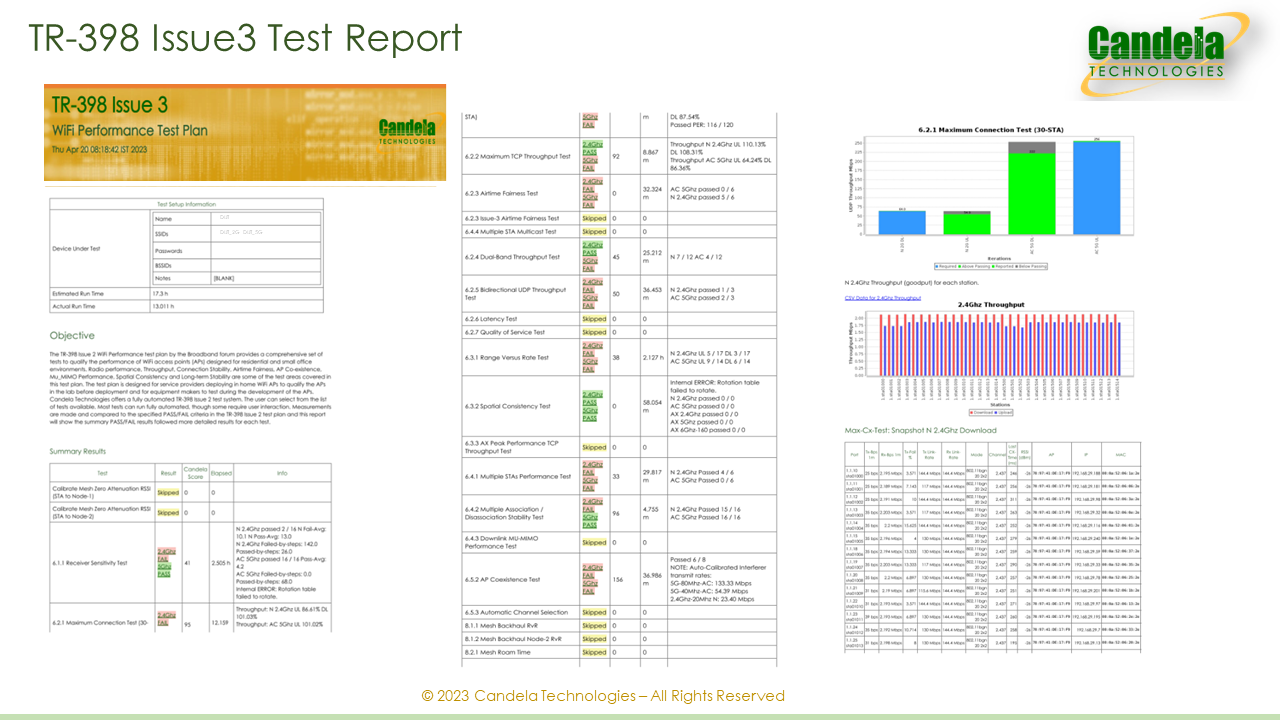
Candela Technologies offers a fully automated TR-398 Issue 2/3 test system. All the required test hardware including multi station emulator, traffic generator, RF enclosures, turntable, programmable attenuators, and fully automated test software along with PASS/FAIL results are provided in a packaged, easy to use and affordable solution. This testbed uses 32 ax210 tri-band 2.4/5/6E radios for AX test cases, plus 6 dual-band virtual station radios. This offers additional testing opportunities, including AXE testing and 32 station OFDMA tests.
Wiring Diagram for TR398 Issue-3 without Mesh.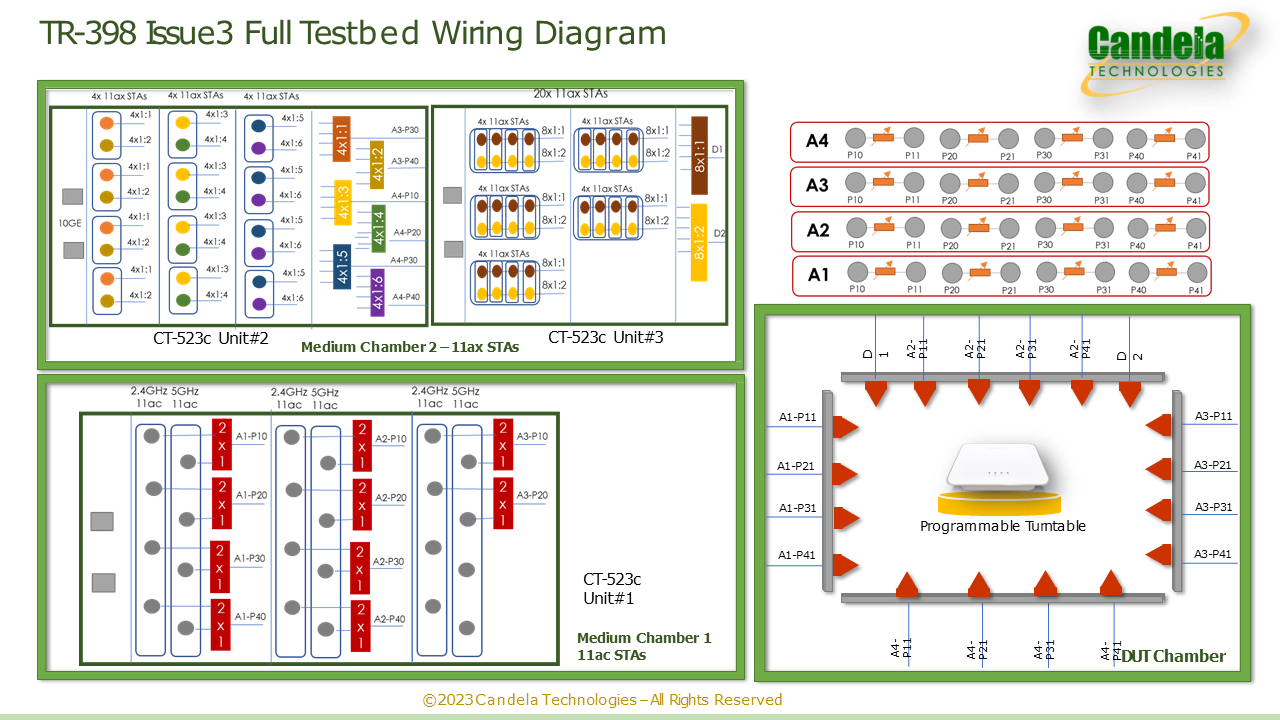
Wiring Diagram for TR398 Issue-3 with Mesh.
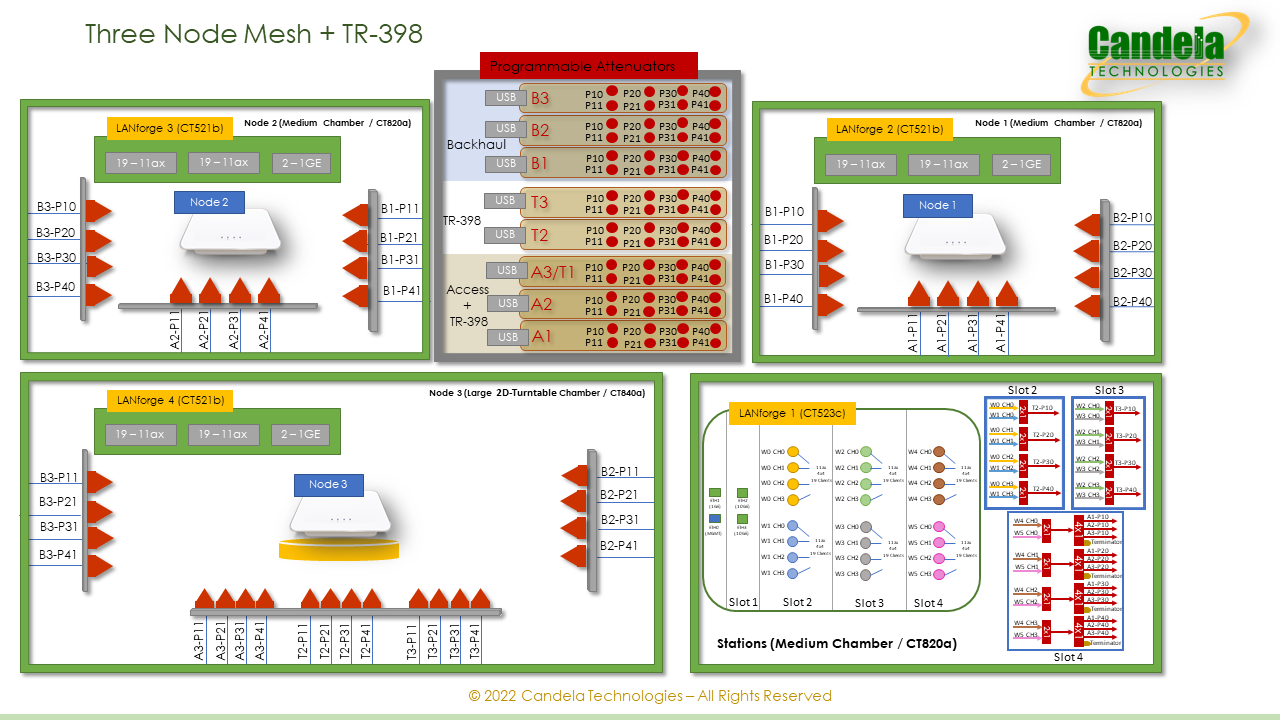
The test setup, testbed components and environment are all created as per the requirements in Section 5 of the TR-398 Issue 3 test plan document. Some of the components may be different than pictured depending on the options purchased. Please ask your sales representative for details.
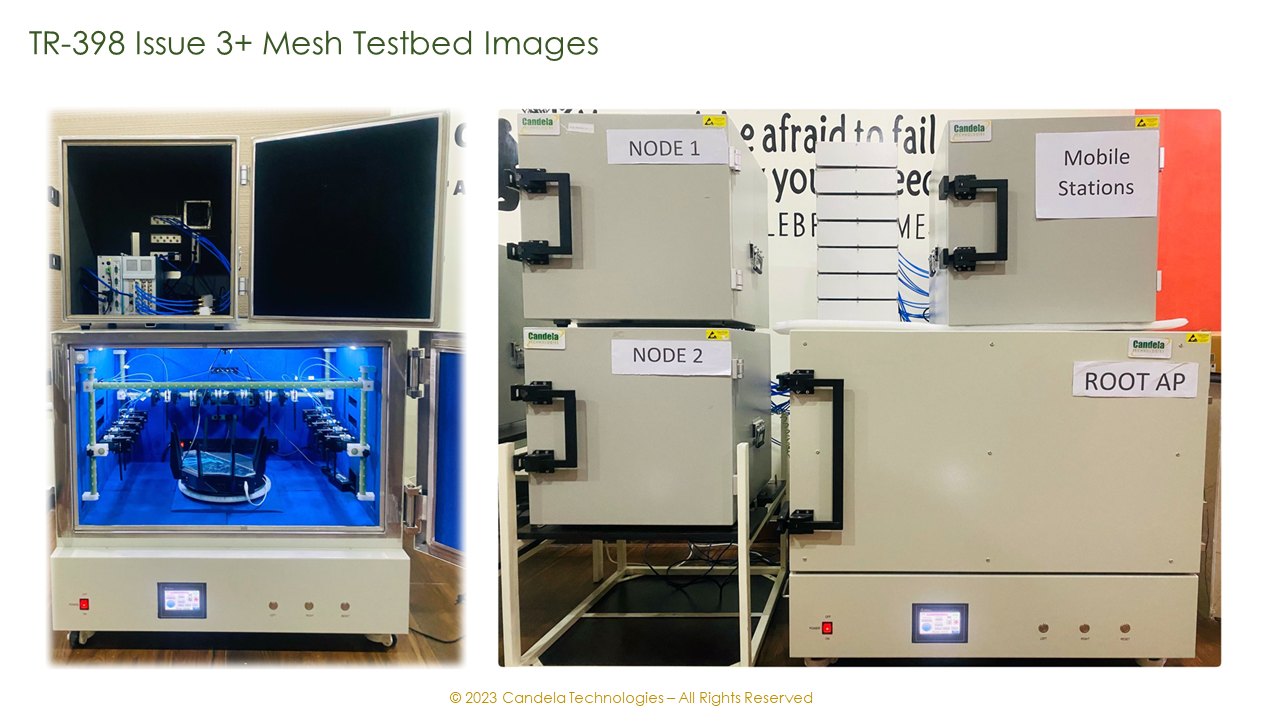
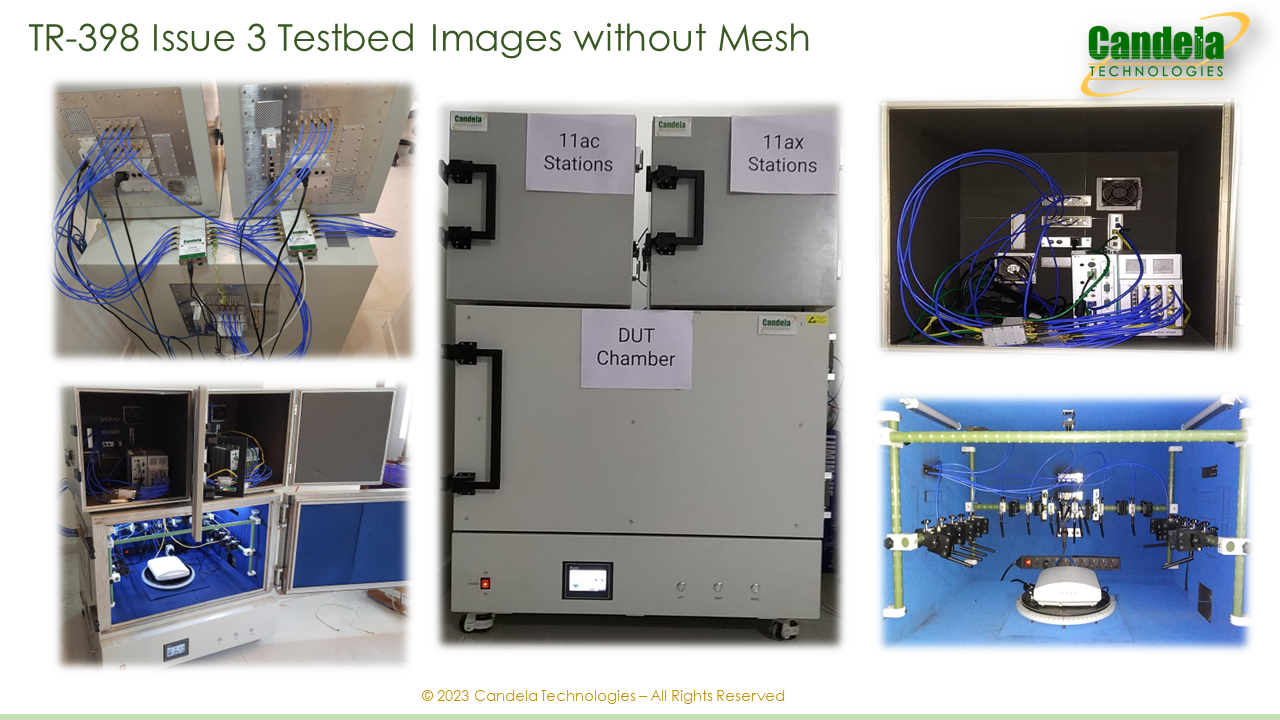
The LANforge GUI provides integrated configuration and automation control for all the components of the testbed including the station emulators, traffic generator, attenuators, and turntables. The entire set of supported TR-398 Issue 3 tests, or optionally a subset of these tests, can be run with a single push of a button. An HTML, PDF, and xlsx report can be generated with a second button click when the test completes.
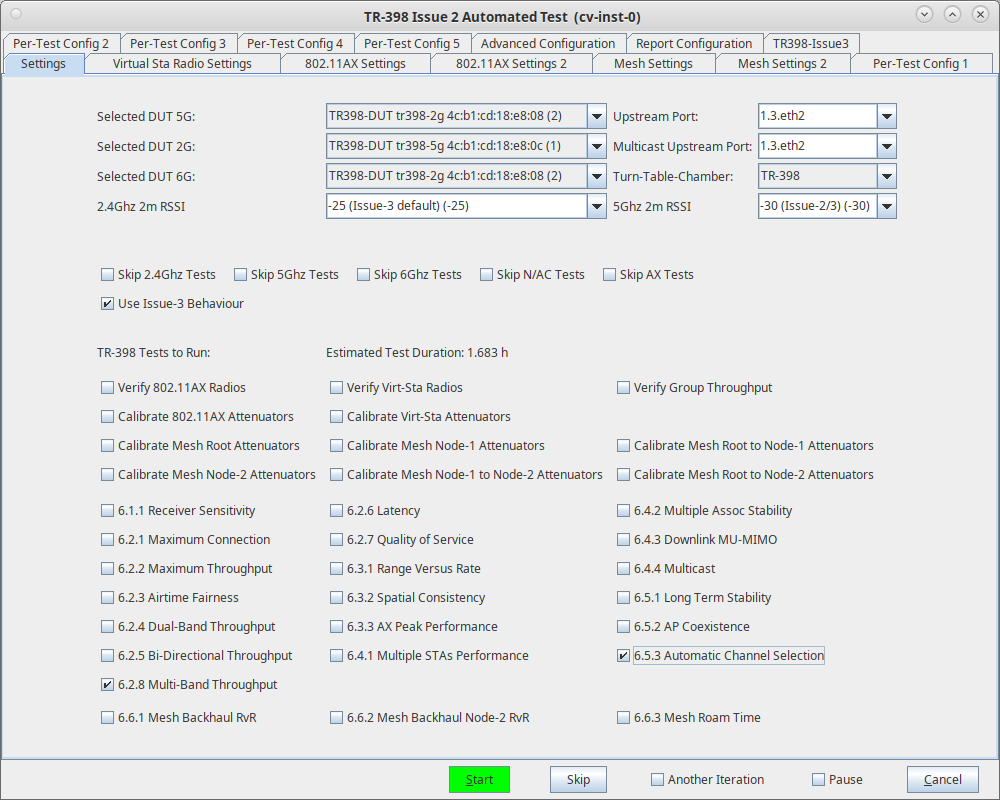
Lead Times: Four to six weeks.
TaaS/Onsite Support: Customers with only occasional test needs can use our Test as a Service option. Candela engineers can do the testing for you in our fully equipped test lab and provide a detailed test report with recommendations.
For more information, please contact sales@candelatech.com or give us a call at: 1-360-380-1618